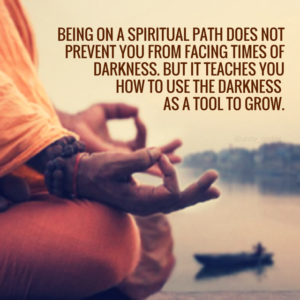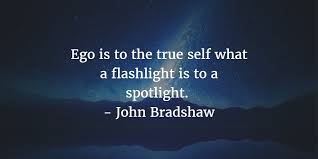Do you want to learn how to become more spiritual, but aren’t sure where to begin?
Many of us have a lot of preconceptions about what it means to be spiritual. We think that a spiritual life means we have to abandon our desires of living well or having fun, in favor of a monastic or pious life.
The reality is much different. Being spiritual doesn’t dictate a list of things you can or cannot do. It doesn’t tell you to quit your job, give away all of your possessions, or sacrifice anything about your life. Instead, spirituality is simply a series of key principles that you can apply to your life, in any way you see fit.
In this post, I’ll go through what I believe are five of the most important spiritual practices. You are free to adopt the ideas you think will help you in your journey, and discard the ones that don’t resonate with you. This is not “the ultimate spiritual principles list” that everyone must follow. It’s simply a few suggestions that I hope will help guide you on your own path.
After we look at each of these principles, I’ll talk a little more about how to become more spiritual, and how to develop a spiritual practice in the modern world.
5 Spiritual Principles Anyone Can Practice
The essence of spirituality has nothing to do with adhering rigidly to a single set of values or routines. Religious beliefs, meditations, and other exercises are not the “right answer.” They are tools that could help you along the way. Instead, I find that spirituality revolves around a few core ideas:
- Self-Reflection, Openness, and Receptivity.
- Reverence.
- Mindfulness and The Now.
- Loving Kindness and Compassion.
- Joy, Appreciation, and Beauty.
Let’s take a look at each concept in turn.
Self-Reflection, Openness and Receptivity
The first, and perhaps the most important, spiritual practice is to develop a sense of self-reflection, openness, and receptivity. I often refer to this idea as continuous renewal.
No matter who you are, where you are, or how long you’ve been living consciously, you hold a set of beliefs. It is all too easy to believe that your beliefs are correct, by the very fact that you believe them. This first practice reflects your ability to recognize that you do not know everything, and that that is ok.
In order to grow, you must be willing. You cannot lead a truly spiritual life if you try to place everything into rigid boxes, or if you attempt to control how things must turn out. Spirituality is about learning continuously, and allowing every detail of your life to become your teacher.
The world is a reflection of exactly where you are, and where you need to be. When you open yourself to looking at the world with fresh eyes, asking what you can learn from each moment, from every circumstance and every interaction, you begin automatically to live more consciously, and to develop a higher sense of awareness about your place in the world.
Reverence
The second practice to develop is one of reverence. If your openness and receptivity represent your desire to learn, reverence is the mechanism through which you study.
To practice reverence, begin looking at the world with new eyes. Develop the belief that everything is already perfect, and continues to evolve in its perfection. Begin to see this in everything you experience.
Another way to think about reverence is to think of respect. Respect every creature, every idea, and every object, animate and inanimate, as if it were your own. Follow The Golden Rule, and treat everyone as you would wish to be treated.
The idea is simple, but it often takes a lot of practice to be able to apply this concept to the conflicts we experience every day. Practice releasing your need to be right, all of the time, and instead recognize that everyone holds opinions and beliefs that, from their perspective,are just as valid as your own.
Mindfulness and The Now
Mindfulness is a tool for connecting with The Now moment, and appreciating life more fully. When you become mindful, you become more attuned to the subtle joys that are constantly passing you by.
Take the time to stop and focus in on this moment, right now. Notice the sensations that you feel, from the soft touch of a breeze to the sound of a bird or the colors of a flower. Notice how there are always new details available for you, and yet you rarely take the time to see them.
Practicing in this way, you will begin to gain a new perception of time, and the role you must play within it. Gradually, you will begin to experience glimpses of The Eternal Now, a feeling of Existence, Being-ness, and Is-ness that extends beyond our normal experience of the world.
Loving Kindness and Compassion

As you proceed down your spiritual path, loving kindness becomes inevitable. As you learn that you are always learning and always evolving, and as you approach the world with reverence and respect, you will begin to see that, like you, everyone else is also on their own paths.
It is not your place to judge another for the path he is on, just as you would not wish to be judged for your path. Furthermore, you cannot know what another person is experiencing, nor why they are experiencing it in that moment.
Understanding this leads to compassion. Even if you cannot physically help someone, you will begin to love them. You will begin to think kindly of them, and you will act in accordance with that kindness.
Joy, Appreciation, and Beauty
Lastly, I believe that many people underestimate the importance of joy as a spiritual practice. The universal energy that binds us — whether you call that God or quanta – is an energy of love, joy, and beauty.
Your connection to All That Is begins with your ability to follow your joy. As you look for the beauty in the world around you, appreciating what is before you even when it seems difficult to do so, you cannot help but to increase the feeling of peace you hold. As you increase your own peace, you develop a stronger connection with universal energy. You resonate at a higher frequency, and you act effortlessly from a state of love.
This makes following your joy the single, best thing you can do. Begin to take the time to get in touch with that joy, and a new world will open before you.
How To Become Spiritual
Once you get a grasp on these five core ideas, you’ll be able to live your life with a higher level of awareness. Above all else, there are two key practices that can help you to achieve your spiritual aims and apply these principles to your life.
Quieting The Mind

If not, you can check out this beginner’s guide to meditation, or read this post with tips to meditate properly.
Quieting the mind isn’t just about meditation, however. It’s also about how you deal with thoughts and learning to work with your own natural energy. We also offer a free 30-day course that covers everything you need to know to get started.
Remembering Your Awareness
I find that for most people, the challenge is not actually learning how to become spiritual, but remembering to practice these principles as you move throughout your life.
We all have an idea of what it means to be a good person and to lead a kind, loving, and joyful life, but more often than not, we forget to apply that practice to our daily habits. We think that the demands of the physical world outweigh the demands of the spiritual world. Gradually, we lose our connection to ourselves, while trying to pursue other things in life.
Becoming spiritual every day is about deciding that your energy, the way you feel every single day, is your number one priority. You have to be willing to let your ego move to the side as you follow what your intuition tells you about how to respond in any given situation.
This may take some practice, but if you work through the free courses we offer here at The Joy Within, you’ll be able to learn a number of different exercises that can help you.
Spirituality and Practice in the Modern World

Don’t forget, however, that we refer to spirituality as a journey for a reason. It is a path without end, and there will be ups and downs along the way. You will find some situations arise that cause you to respond out of habit or fear, while other times you coast effortlessly.
Step back, enjoy the process, and always remember: you are exactly where you need to be.
The post How To Be Spiritual: Principles and Practices for Modern Life appeared first on The Joy Within.
source http://thejoywithin.org/spiritual-principles-practices-modern-life

 Are you looking for incredible meditation music but just can’t find the right mix? Look no further. In this post I’ll share some of the best meditation tracks I use for my morning meditations.
Are you looking for incredible meditation music but just can’t find the right mix? Look no further. In this post I’ll share some of the best meditation tracks I use for my morning meditations.